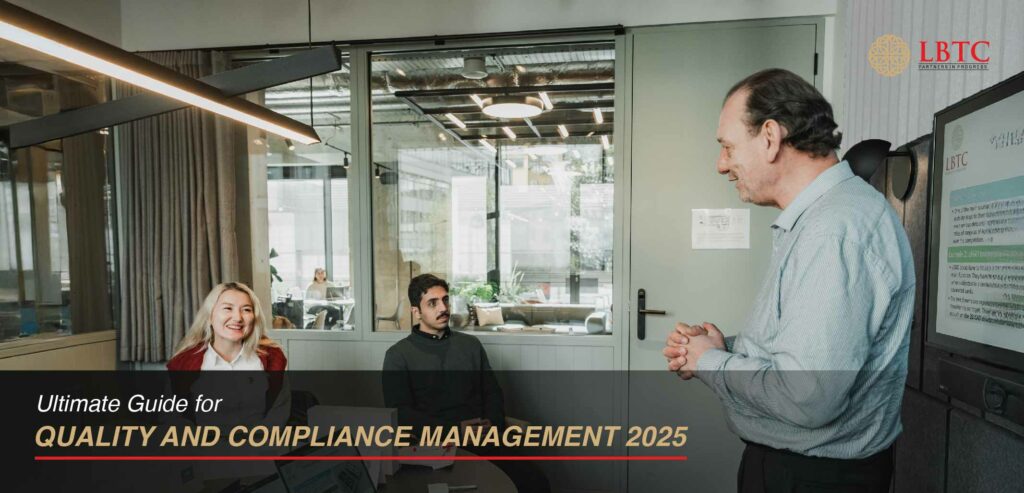
In 2025, the importance of quality and compliance management continues to grow, as businesses face mounting regulatory pressures, evolving customer expectations, and increasing competition. Organisations must implement effective strategies to ensure operational excellence while adhering to strict regulatory standards. For professionals looking to excel in this field, quality management courses offer an invaluable pathway to mastering the skills and knowledge required to thrive.
Why Quality and Compliance Management Matters
Quality and compliance management is the backbone of any successful organization. Companies with strong management systems reduce risks, enhance customer satisfaction, and build a competitive edge in their industries.
Failing to comply with regulations can lead to significant fines, damage to reputation, or even the closure of operations. Quality management courses provide the tools professionals need to navigate these challenges and develop systems that foster continuous improvement.
Key Trends in Quality and Compliance Management for 2025
- Integration of Technology
Advanced technologies like Artificial Intelligence (AI), Machine Learning (ML), and the Internet of Things (IoT) are transforming the way businesses approach quality and compliance. Automation tools simplify processes like document management, auditing, and data analysis, making compliance more efficient and less error-prone.
Enrolling in quality management courses that focus on technology integration can help professionals stay ahead of the curve. - Increased Focus on Sustainability
Companies are under growing pressure to align their operations with environmental, social, and governance (ESG) principles. In 2025, Organisations are expected to prioritize sustainability in their quality and compliance strategies. Quality management courses now often include modules on ESG compliance and sustainable practices, equipping professionals to lead green initiatives within their Organisations. - Global Compliance Standards
As globalization expands, businesses must adhere to international compliance standards like ISO 9001 for quality management or ISO 14001 for environmental management. Courses that provide certifications in these global standards are essential for professionals aiming to work in multinational environments.
Best Practices for Quality and Compliance Management
- Implement a Robust Quality Management System (QMS)
A QMS is a structured framework that ensures all processes within an organisation meet quality and regulatory requirements. The system should be scalable, adaptable, and aligned with organisational goals. Professionals can learn how to design and implement a QMS through specialized quality management courses. - Conduct Regular Audits and Reviews
Frequent audits enable organisations to uncover weaknesses in their quality and compliance procedures. They also ensure continuous improvement. Training programs often include audit management techniques, empowering professionals to lead effective evaluations. - Promote a Culture of Quality
Organisations must instill a mindset of quality across all levels. This demands dedication from leadership, active participation from employees, and continuous training efforts. Quality management courses often emphasize the importance of cultural transformation as part of achieving long-term success. - Utilize Data for Decision-Making
Data analytics plays a pivotal role in identifying trends, measuring performance, and driving improvements in quality and compliance. Modern courses in quality management include training in data-driven decision-making to enhance operational efficiency.
Conclusion
Quality and compliance management is a critical function for businesses striving for excellence in 2025. Professionals equipped with the right knowledge and skills can lead their Organisations to success in a complex regulatory landscape. Quality management courses provide the foundation needed to excel, offering insights into the latest trends, technologies, and global standards.
By investing in continuous learning, Organisations and individuals can ensure that they remain competitive, compliant, and committed to delivering exceptional quality.

Leave a Reply